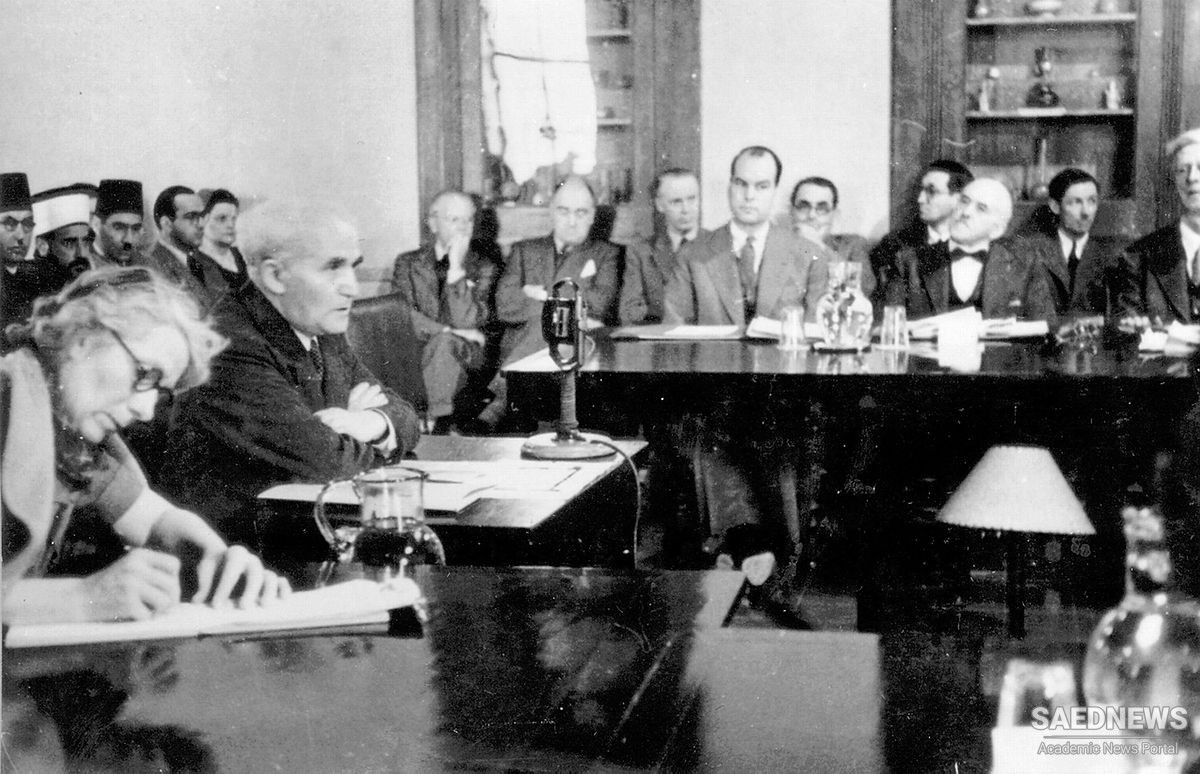For a period not exceeding three years the state would be under the administration of an authority designated by the UN. During that time Jewish immigration would continue according to the absorptive capacity of the Jewish state, which would be determined by an international body. After that immigration policy would be for the new state to decide. The federal government would have responsibility for defence, foreign relations, immigration, federal taxation, currency and communications. The Arab and Jewish governments would control education, police, housing, health, land rights and agriculture. There would be two chambers of parliament at the federal level, and a federal court. An international body would supervise and protect the holy places. As had been requested, these reports were com pleted by 31 August, to be ready for the regular Assembly session beginning in mid September.
While the Special Committee was in Palestine, the British had given little indication of their own views. They were thought by some to be stalling, in the hope of maintaining the mandate for a number of years (and it is true that over the previous year or so a considerable amount of military equipment had been moved to Palestine from the Canal Zone, showing that the British War Office at least had hoped for a prolonged British stay in Palestine). Whatever its earlier intention, however, by September 1947 the British Government had decided that it had had enough of its costly and intensely unpopular burden in Palestine.
As soon as the General Assembly began to consider the Palestine issue, in late September, the British Colonial Secretary, Arthur Creech Jones, announced that it was the intention of the British Government to withdraw from Palestine. His government, he said, 'endorses without reservation the view that the mandate should now be terminated'. Any proposal made by the UN must take account of this intention. The British Government 'would be in the highest degree reluctant to oppose the Assembly's wishes in regard to the future of Palestine': it would thus give effect to any plan which had the agreement of Jews and Arabs. But if the plan was not so acceptable then some other authority might have to take the responsibility for implementing it. In any case, the British Government must plan for an early withdrawal of British forces and an end to British administration.
On 23 September the Assembly decided, against the wishes of the Arabs, to establish an ad hoc committee to consider the Palestine problem in the light of the Special Committee's report. Like many Assembly committees, this would be a committee of the whole, representing every member. Within the ad hoc committee the Arabs were naturally anxious to prevent endorsement by the UN of the proposals of the majority report for partition. Sensing the bandwagon in favour of partition, they proposed that an advisory opinion of the International Court of Justice on various legal points concerning the mandate should be obtained before any definite decision was made. This at least would cause some delay. Indeed, from their point of view the best hope was that the UN would fail to make any decision at all. The British, who had never endorsed partition, might then decide to give rapid independence to a unitary state. The representatives of the Arab Higher Committee announced that the Arabs of Palestine would oppose partition, or any policy providing a special position for the Jews in Palestine, by every means at their disposal.
But the majority were determined to go ahead and reach a decision. This was not merely because a request for an Assembly recommendation had been made by the mandatory power. It was because there now opened the opportunity, in the eyes of many, to solve not only the problem of Palestine itself, but the wider problem of the Jews as well, the homeless people whose age-old wrongs, it was felt, could now finally be rectified. Even on practical grounds partition seemed the most sensible step, given the intense hostility between the two communities and the unlikelihood of their ever settling down in peace within the same state. In October the Soviet Union announced that it supported partition (at this time the Russians apparently hoped that a Jewish state, run largely by Russian Jews, many of leftist views, would be a progressive force in the Middle East, and subject to Soviet influence). The United States, as was expected, endorsed the majority report. Soon a large proportion of the existing international community, including its two chief powers, were clearly committed to the idea of partition. For this reason it was the Jews who at this time demanded a strong UN role in determining the country's future, and the Arabs who took the opposite view.
Most members of the UN accepted that the matter should be resolved by a vote within the organisation. This was partly because many of them favoured a particular solution, partition, which was only likely to come about through a UN decision, and partly because at this period there was a general belief that the UN could 'settle' difficult questions by passing resolutions on the subject. Just as the UN could settle the future of the Italian colonies or of Indonesia, so it could 'settle' Palestine. This would be done by the Assembly's (not the Security Council's) passing an edict on the matter. One effect of this god-like approach of the Assembly was that there was never any serious attempt at conciliation, negotiation or peace-making.


 Palestine Paradox: Divided Nations after Union
Palestine Paradox: Divided Nations after Union














































